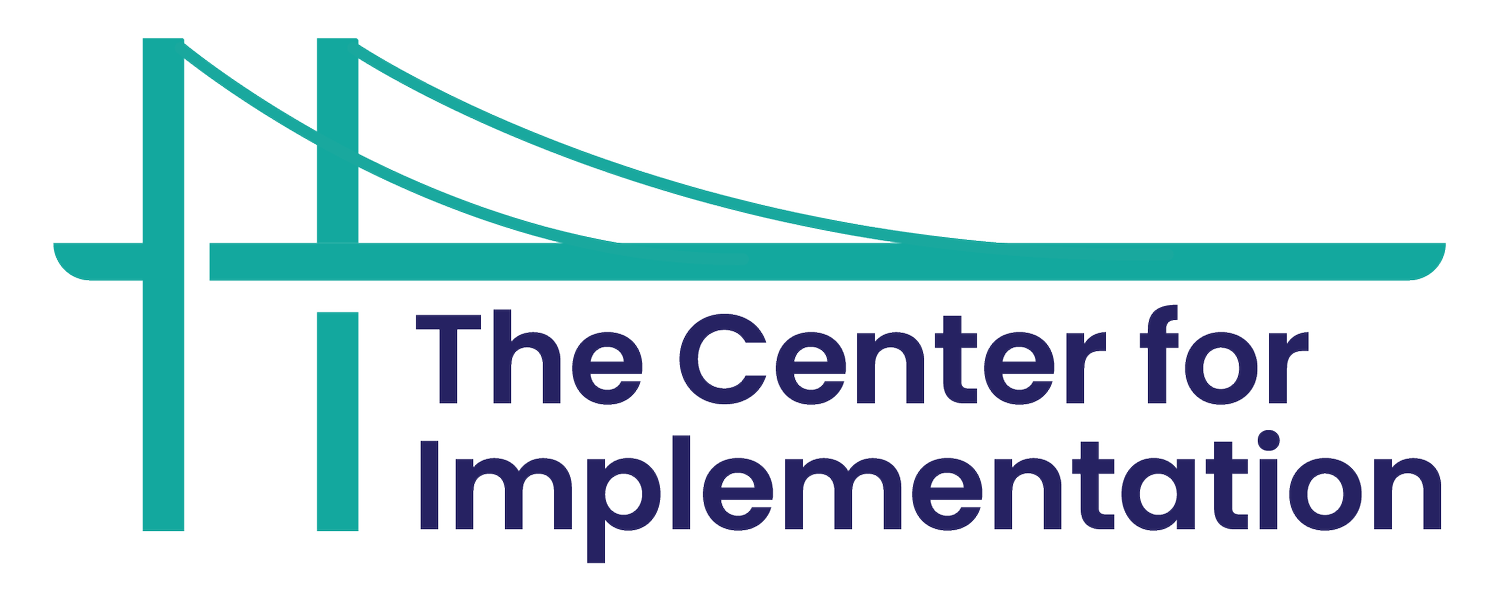Trust in Collaborative Implementation Efforts
By Julia E. Moore, Executive Director
Note: We have updated our website since this article was published. As a result, you may have been redirected here from a previous URL. If you are looking for the article, “Project Spotlight: When ‘Trust’ trumps ‘Must’ – experimenting with Trust in the implementation of new practice innovation for youth in Ireland” by Jackie Dwane, and Prof. Sean Redmond, please click here.
Relationships are at the core of all implementation efforts. To enact change, people need to build relationships and work together towards a common goal. In trying to support change, there are multiple types of relationships: relationships between individuals, relationships between groups within organizations, and relationships between organizations or groups.
Trust as the foundation of implementing change
Trust serves as a foundation for strong relationships. There is emerging evidence of the central role of trust in implementation. At the same time, people are rarely trained in how to build trust. In fact, most of us can’t even define what trust is.
Trust is the confidence in the other person’s reliability and integrity.
Factors that affect trust
Understanding the factors that build trust is the first step in changing how we approach trust building. There are several different frameworks to choose from, this framework is one that we have found a really resonates with implementers describe how there are three key factors that influence individual trust:
Authenticity
Competence
Empathy
Here is how the framework is applied to help us make sense of what is building or eroding trust. First, when gauging authenticity, perceived motives matter. We believe that people are being authentic when we think they are sharing their true motives, and that they don’t have ulterior motives. There’s an additional dimension here; we trust people more when we feel their authentic selves have some level of compatibility with our authentic selves. For example, you might believe someone is showing up authentically but have different values and therefore not trust them, despite believing they are being authentic.
Second, we trust people when we believe that they are competent. That means that we are confident that they have the knowledge, the skills, and are going to follow through with what they say they are going to do.
Third, we trust others, when they express empathy. When we feel like someone else is able to take and communicate our perspective, even if they don’t agree with our perspective, it increases our level of trust.
In a truly trusting relationships, all three of these things are in place. We can often reflect on previous relationships, particularly those where there was a lack of trust, and recognize that there may have been a lack of belief in the other persons authenticity, confidence, and/or empathy. We also have a huge opportunity to reflect on our own contributions to the situation. Why do you think others may not have trusted you?
Although only based on anecdotal evidence, it is interesting that every time we at The Center for Implementation present these concepts, we have observed a consistent pattern, where people say that they lacked trust in others, because they didn’t think other people were showing up authentically. When describing why they thought others did not trust them, people have been most likely to say that others did not believe they were competent. Every time this happens, it leaves me thinking that authenticity is probably playing a much larger role than we believe. I wonder whether we realize the importance of authenticity and whether we consider how to show up authentically in our work. It seems like an under-explored area that is vital to building trusting relationships.
Trust in collaborations
Those three factors (authenticity, confidence, and empathy) are related to trust between individuals, but it gets even more complicated when we start thinking about trust in collaborative work, where multiple organizations or communities are involved. Although trust is essential for success in these situations, it is often not explicitly discussed.
We believe there are several ways to advance the field of implementation science and the work of implementers in relation to trust:
Fostering trust building capacity in professionals across disciplines
Explicitly incorporating trust building and discussions of trust into collaborative implementation efforts
Undertaking research studies to advance our understanding of trust and implementation efforts
That is why we were so excited to learn about the work of the Research Evidence into Policy, Programmes and Practice using trust as a governance mechanism, and explicitly building in processes to discuss trust throughout the implementation process.
This article was featured in our monthly Implementation in Action bulletin! Want to receive our next issue? Subscribe here.
